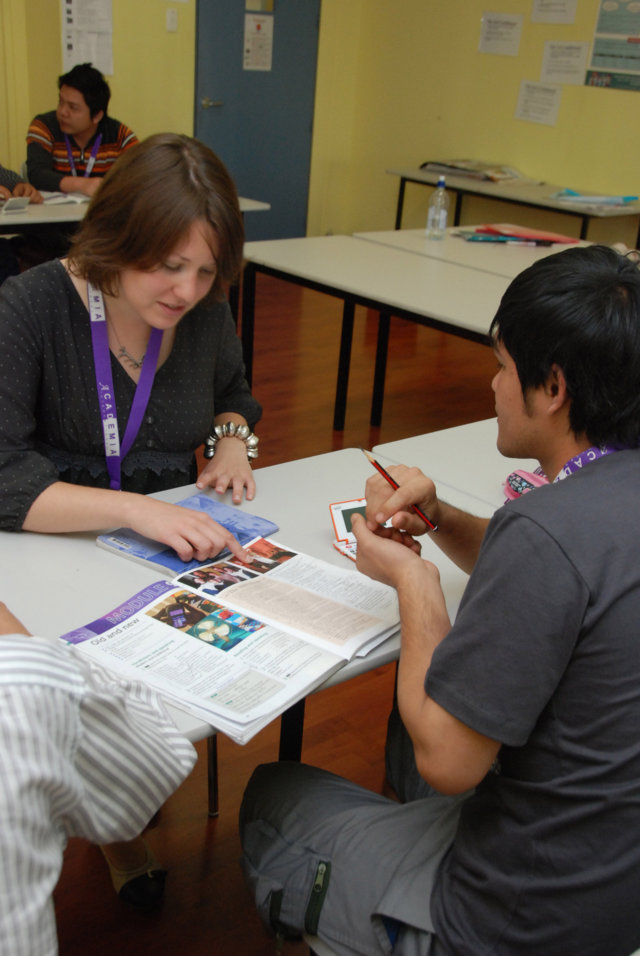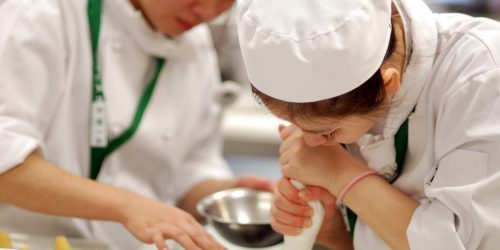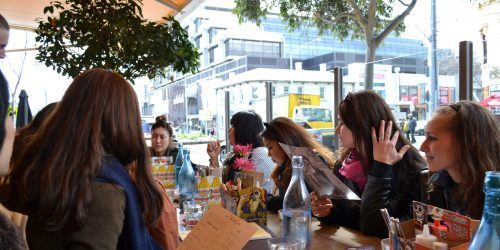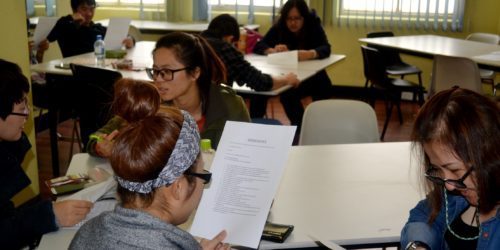Handy skills to know before you start commercial cookery in Melbourne

So you’re interested in a career in hospitality – specifically, commercial cookery.
You’re looking at cooking courses in Melbourne, and found one that has amazing and positive testimonials from past students. You’ve discovered how students received the right training to set them up for long and rewarding careers in the industry.
Excitedly, you start filling in the enrollment paperwork.
Of course, if you want to succeed, it’s important that you also take some time to familiarise yourself with the work you’ll be doing.
We often hear people asking what they can do before they start class, or tips, tricks, and techniques they should become familiar with.
To help you out, we’ve put together a short list of skills and tricks to learn before you start one of our hospitality courses in Melbourne.
These skills are not essential before you start your studies, but a basic understanding of them can help you succeed once you commence your cooking courses in Melbourne.
1) Familiarise yourself with measurements
One of the most confusing things about cooking: measurements.
Despite going metric in 1974, many kitchens, recipes and much of the hospitality industry continue to stick with the old system of measurements.
Don’t be surprised if you see recipes (particularly older ones) that mention teaspoons, pounds and ounces!
While most kitchens will use measuring cups that use both systems, we still recommend familiarising yourself with both systems.
Commercial kitchens move fast – so it’ll help if you can get to know common standard measurements!
Measuring liquids
- 1 teaspoon = 5 ml
- 1 tablespoon = 15 ml
- 1 fluid oz = 30 ml
- 1 cup = 237 ml
- 1 pint = 2 cups = 473 ml
- 1 quart = 4 cups = 0.95 litres
- 1 gallon = 4quarts = 3.8 litres
Measuring solids
- 1 milligram = 0.02 grain
- 1 gram = 0.04 oz
- 1 kilogram = 2.2lb (pounds)
- 1 tonne = 1.1 short ton
- 1 tonne = 0.98 long ton
And while we’re on the topic of conversions…
2) Fahrenheit vs. Celsius – do you know the difference?
Just like with measuring liquids and solids, there are two different ways of measuring heat you’re likely to run into (or three, if you count Kelvin).
It’s important that you know both because some ovens and stoves will measure heat in Fahrenheit and some will measure in Celsius. Not to mention, many recipes are still written with Fahrenheit.
If you only have the Celsius temperature, you can convert it to fahrenheit by multiplying the Celsius number by 1.8 and add 32 to the result. To get Celsius from Farhrenheit, simply reverse the equation.
- Fahrenheit equation: F = (1.8 x C) + 32
- Celsius equation: C = (F – 32)/1.8
Of course, you won’t always have time to break out the calculator and crunch the numbers.
To help you work faster, here are a couple rules of thumb you should also know:
- Water boils at 212F
- Water freezes at 32F
The Farenheit system is seldom used around the world, in just a few countries. One of these however is one of the biggest countries: the USA!
3) Knife holding skills and techniques
As part of our cooking courses in Melbourne, one of the first things we teach is proper knife technique.
From observing our students over the years, we’ve realised there are many ways a knife can he held – and almost all of them are acceptable.
However, there are some techniques that are better than others in certain circumstances.
You can hold a knife with your entire hand clasped firmly around the handle. This is a good technique as your fingers are always protected from the blade. However, what you gain in safety, you lose in knife control.
You can also choose to slide one finger (or even two fingers) up the blade of the knife so they rest next to the handle.
This is a good technique to ensure more control over the knife, and you’ll see chefs do it all the time.
We recommend moving your hand up, and pinching the blade with your thumb and index finger. We’ve found that this grip offers the best balance of dexterity and stability.
The one thing you should never do (and we see people do it a lot) is place your index finger on the top of the knife so that it runs along the blade.
People often think that this will create stability but it actually does the opposite and will make you more prone to slipping and cutting yourself!
4) Learn about safe meat handling
As we all know, raw meat is something that needs to be treated with care.
Unlike vegetables which can be had raw, meat needs to be handled carefully if you want to protect your diners from food poisoning and salmonella.
In addition to carefully washing your hands and cleaning utensils after handling meat, it’s also important that meat is stored properly.
That means:
- Storing it in a fridge to preserve it safely
- Using a sealed container to keep it fresh and prevent bacteria getting in
- Placing it on the bottom shelf to avoid dripping onto other food
This isn’t just essential for those enrolled in a commercial cookery course in Melbourne – it’s good advice in general!
Enrol in our industry-leading commercial cookery courses in Melbourne
If you’re interested in pursuing a career in the hospitality industry, you’ll need to start by gaining the right skills and qualifications!
Laying all the groundwork at home certainly helps – however, you’ll also need to formal training for some of the stuff you won’t be able to pick up on your own.
And that’s where we come in.
At Academia, we offer a wide range of hospitality courses in Melbourne that help students just like you to reach their culinary goals, whatever they may be.
Our commercial cookery courses are:
- Certificate III in Commercial Cookery
- Certificate IV in Commercial Cookery
- Diploma of Hospitality Management
- Advanced Diploma of Hospitality Management
(Got a sweet tooth? We also offer a range of patisserie courses!)
Work placement
As a part of your studies, you’ll also enjoy an internship working in a real-life commercial kitchen in one of the 5-star restaurants and hotels we are associated with.
Many of our students who have participated in placement have actually been offered employment at these establishments!
Some of the high-profile venues we partner with include:
- Grand Hyatt Melbourne
- The Langham Hotel
- The Westin Melbourne
- Park Hyatt Melbourne
- The RACV Club Melbourne
- The Sheraton Melbourne
Pathways
And if you want to take your career even further, there are pathways for that too. Add a Diploma from our Hospitality Management stream to your commercial cookery course if you want to take on a managerial or more senior role either in or out of the kitchen.
Got questions? Contact Academia today!
Unlike other institutions, Academia is a mid-sized institution. If you ask us, that’s one of our biggest strengths – this allows our instructors and teachers to be more invested in your education and provide greater one-on-one attention than a larger institution.
If you’re interested in studying one of our cooking courses in Melbourne you can get in contact with us using the numbers below.
We also offer all our commercial cookery courses at our Brisbane campus, if you’d like to study in sunny Queensland!
Alternatively, you can enquire online today!






